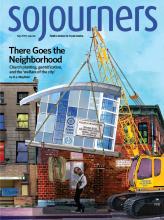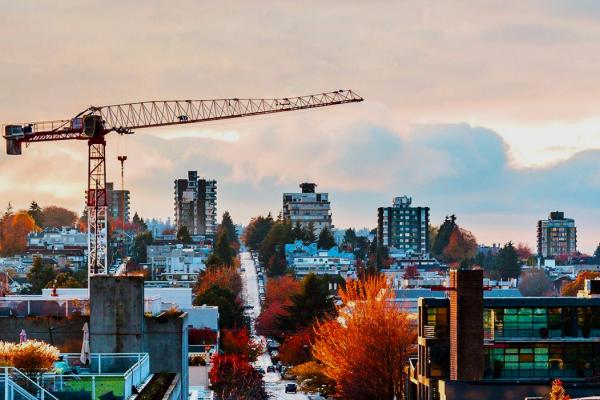LAST YEAR, STANDING at a microphone in front of our city council at a town-hall meeting, I came to a stark realization: I needed a theology of gentrification.
There I was, shakily demanding that the city not tear down our neighborhood’s one and only park to build a “revitalization” project complete with brew pubs and shared workspaces. I looked at the row of people seated at the city council table, frowning slightly at me, and worked up my courage, pretending I was channeling the tiniest bit of the pope.
“We have a moral responsibility to consider those who don’t have resources and how we can best serve them,” I said, my cheeks flushed. The architect talked about the need for income-generating elements, the secretary entered my remarks in the meeting record, and the developers changed none of their plans. As helplessness crept up into my heart, it became clear that I had no idea what I was doing and needed some instruction.
The irony was not lost on me. I had spent years studying how to do good and how to spread the good news. I got my degree in Bible and theology with a minor in intercultural studies; I volunteered with refugee resettlement agencies for more than a decade and joined a mission order among the urban poor for three years. I can quote the Bible and recite a theology of cultural engagement frontward and backward; I can wax poetic about God’s preferential option for the poor. And yet, in my 13th year of residing in a neighborhood mostly inhabited by people on the lower end of the socio-economic spectrum, I feel lost in the face of the most pressing realities confronting my neighbors.
Read the Full Article

